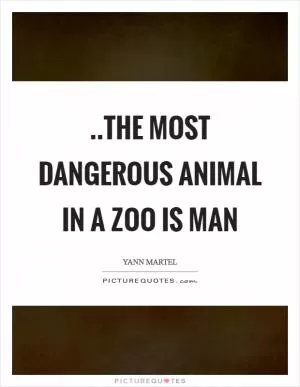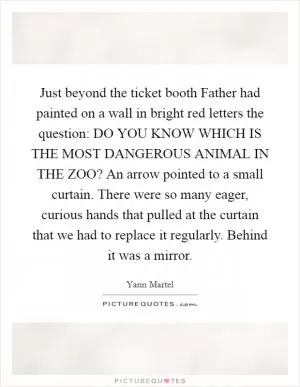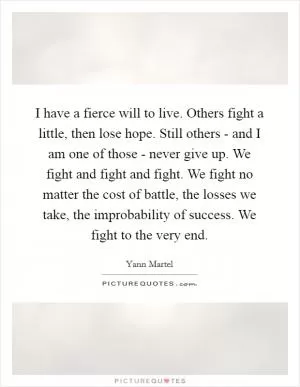The reason death sticks so closely to life isn't biological necessity – it's envy

The reason death sticks so closely to life isn't biological necessity – it's envy
In Yann Martel's novel "Life of Pi," the theme of death is a constant presence throughout the story. The quote "The reason death sticks so closely to life isn't biological necessity – it's envy" can be interpreted in various ways within the context of the novel.One way to understand this quote is through the character of Richard Parker, the Bengal tiger who shares a lifeboat with the protagonist, Pi. Throughout the novel, Richard Parker represents the primal instinct for survival and the harsh reality of the natural world. In this sense, death can be seen as a constant threat that lurks in the background, waiting to claim its victims. Richard Parker's presence on the lifeboat serves as a reminder of the fragility of life and the inevitability of death.
Another interpretation of the quote can be seen through the character of Pi himself. Pi's journey is one of survival against all odds, as he faces numerous challenges and dangers while stranded at sea. Death is a constant companion to Pi, lurking just beneath the surface of his consciousness. In this sense, death can be seen as envious of life, always seeking to claim those who are living.
Furthermore, the quote can also be understood in a more philosophical sense. Death is often seen as the great equalizer, the one thing that all living beings must eventually face. In this way, death can be envious of life, as it is the one thing that is beyond its reach. Life is precious and fleeting, and death can only watch from the sidelines, unable to touch it.
Overall, the quote "The reason death sticks so closely to life isn't biological necessity – it's envy" can be seen as a reflection of the complex relationship between life and death. In the context of "Life of Pi," death is a constant presence that serves to remind us of the fragility of life and the inevitability of our own mortality.












 Friendship Quotes
Friendship Quotes Love Quotes
Love Quotes Life Quotes
Life Quotes Funny Quotes
Funny Quotes Motivational Quotes
Motivational Quotes Inspirational Quotes
Inspirational Quotes